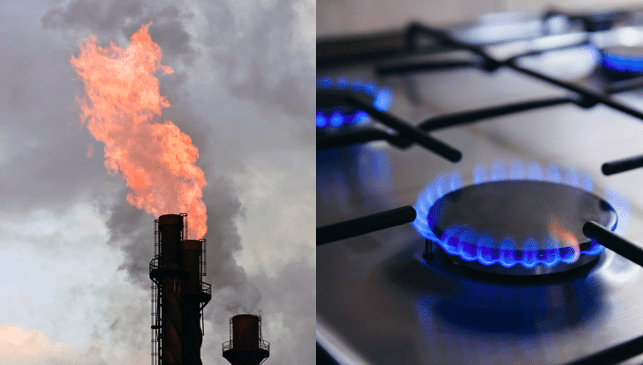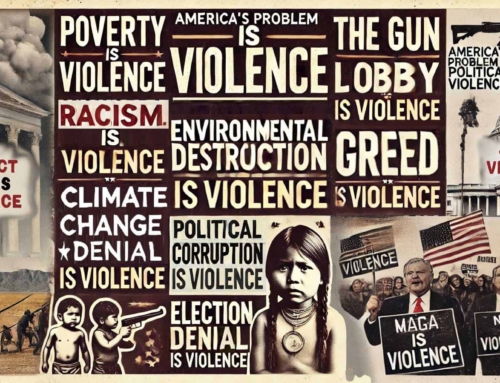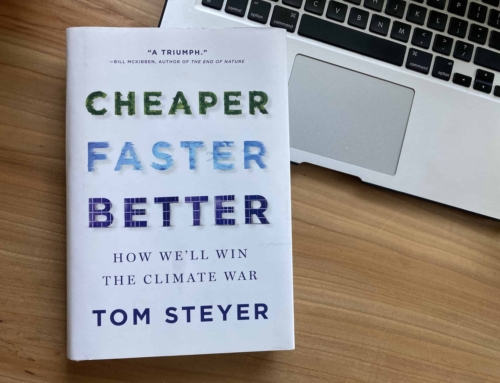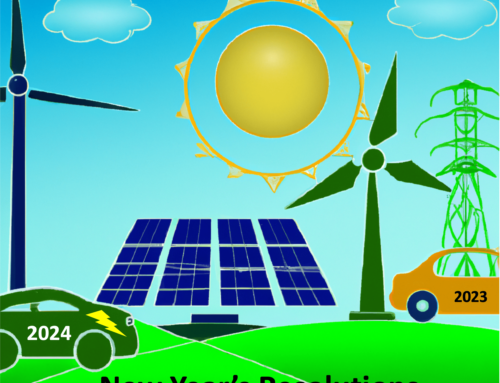The Strategy and Language of the Gas Stove Culture Wars
So you want to “ban” gas stoves?
A firestorm erupted in January over the pollution of gas stoves. As climate activists, we reacted without a solid strategy and without testing the language we are using. Consequently, we may lose the stove battle, and the war to stop methane emissions. There are two things we need to do about this. First, understand and coordinate the strategy, and second, use more effective language and stories.
What Happened:
We’ve known for decades that gas stoves are a health hazard causing asthma among children and other health issues like respiratory disease and dementia for adults. A meta-study confirms these findings.
So when Richard Trumka Jr., a US Consumer Product Safety commissioner indicated that gas stoves might be banned in new construction, due to health issues, it’s not surprising that many of us repeated the word ban. You know… stoves are leaking gas, gas is bad for you, ban new gas hookups, ban gas stoves.
The gas industry, and then right wing politicians like Rep. Ronny Jackson, R-Tx, replied, “… if you come for my gas stove, you can pry it from my cold dead hands. COME AND TAKE IT!” Now gas stoves are in the middle of the culture war, and senators Cruz and Manchin want to introduce legislation prohibiting banning of gas stoves. On a statewide level only 3 states have succeeded in banning new gas hookups, 20 have passed bans against bans.
Our Reaction:
We sometimes confuse communications with strategy. Language and communication are tactics that help support strategy. But with a sense of urgency, we rush to react. We try to provide “reasons and facts” like how natural gas is a “GHG 80 times worse than CO2 and contains NOX’s which are a health issue.” True, but boring and ineffective.
The gas industry also cleverly appropriates our own language to use against us such as “clean” natural gas or “renewable” natural gas.
We tend to fall into traps set by industry think tanks with poorly chosen language. i.e. Natural gas is NOT clean.” We fail to realize that perception and not facts ultimately determine the public truth and beliefs. These perceptions are often the result of our brains responding to framing. So the gas industry quickly framed the discussion as one of freedom and independence using scarcity and fear. They tell the story, “They are going to ban your stove just like they wanted to ban your hamburgers. These people are dangerous, woke, <insert your own ad hominem attack>.
Gas Industry Strategy:
The gas industry’s goal is to preserve and grow the use of natural gas. They do this to maintain their profits. They have no compunction about creating health hazards, poisoning community waters by fracking, or destroying the atmosphere and our climate. Their primary strategies are: 1) changing how people feel about gas, 2) using language that promotes these feelings, i.e. clean, and 3) delaying and attacking any response.
Stoves are a much loved part of our gas hookups. The gas industry has spent tens of millions of dollars promoting that we can somehow cook better with methane through their “cooking with gas” campaign. Why?
Because they realize that gas stoves are the most visible part of the gas use in the home. Stoves are symbolic for how people feel about natural gas overall. We feel good about cooking and providing meals for our families. We like our gas stoves, as opposed to how we feel about our furnaces or water heaters. (Though I have a pinup of my heat pump in my man cave.)
The gas industry sees the handwriting on the wall. And they’ve chosen to use gas stoves as their Maginot line by making them part of a political culture war. Their tactic is to delay moving away from gas, and to win by convincing people that cooking with gas is better, and that gas is clean.
Climate and Clean Energy Strategy:
Our goal has to be to get off gas.
While gas stoves emit only a small percentage of our total methane pollution, we can’t ignore gas stoves because they influence how we feel about gas overall. So we need a two pronged tactical approach.
On a larger scale, John Marshall of the Potential Energy Coalition says, “Yes, we need to transition off dependence on gas heating and gas use in homes. But if we are trying to engage people in solutions, let’s go to the source — the “dirty gas” providers who are leaking “super polluters” (methane) that’s overheating our communities. That’s the communications hill to climb. Sweat the big stuff.”
He has some data that indicates that this is more productive than trying to get rid of gas stoves. But I would argue that we can do both if we invest in the better language and a vision of the benefits of electrifying our homes.
So our key strategies are to position gas as dirty, or toxic, and use language and to change the narrative. On the large front, dirty methane gas is polluting our air and water and harming our communities. If it’s dirty there, it’s dirty in your home, and just like outside, we want to breath clean air inside.
Tactical Messaging, Language, and Framing:
The term natural gas is a frame leading us to associate good feelings about gas through the word natural. It seems innocuous. We prefer natural foods. Nature is good and so is natural. What can be wrong with natural gas? To this the industry has worked hard to add the word clean. No wonder people are confused.
I’ve written about gas framing studies in a post I call, “Do I Smell a New Methane Gas Frame Being Created?” There are two framing conclusions on what we call gas.
- We must change the frame. Using the term methane gas positions gas as undesirable by both Democrats and Republicans, and associates it with pollution, while fracked gas is viewed more favorably by Republicans. There are some subtleties so read the post.
- Use an adjective. For example, use “dirty or toxic” as in dirty methane, or toxic methane instead of the term natural gas. More on the role of adjectives here.
There are also three traps we fall into with language that we must avoid.
- The first is to avoid the word NOT. Our brains can’t process the negative. As George Lakoff famously said in the title of one of his books. “Don’t Think of an Elephant.” Try it. You can’t. And neither can you process the negative in “Natural Gas is NOT Clean.” All your brain hears is Natural Gas and Clean, and when we repeat it, we reinforce this association until people start believing that it is.
- Avoid the word “Ban.” It’s not helping. Let’s purge it from our vocabulary. The word connotes sacrifice. In a simple experiment, the Potential Energy Coalition tested the cost to get someone to support a gas stove ban versus getting someone to oppose it. “It cost $20.48 to get someone to support a gas stove ban, but only $3.03 to get someone to oppose it. That’s seven times less productive an argument. Bans may make good policy,” says John Marshall, CEO of the Potential Energy Coalition, “but they are bad messaging.”
- Use climate first rather than health as a reason to disconnect gas stoves. “The best message didn’t appear to be the health risk. People don’t seem to believe it (yet). Perhaps surprisingly, climate as the reason to replace household gas stoves is 25% more productive than making it about health,” says Marshall. Yet, health as a base for a frame needs more research. Remember that for any frame to thrive, it has to live in an existing narrative. People didn’t believe that COVID vaccines had risks until a small minority kept repeating it. As a result, 200 – 300 thousand people lost their lives unnecessarily. I believe attacking a strength is sometimes as good a tactic as attacking a weakness. From my view, laying a trap for the gas industry to deny methane gas in the home is NOT a health hazard helps position that it is. But this requires coordination and discipline in messaging that we haven’t yet demonstrated.
We must also reinforce our messaging by using a positive vision. “Let’s make our future housing stock cleaner, healthier and safer. Let’s electrify our lives with abundance, not tap into sacrifice.”
To this we can also add a simple description of who is violating our values of clean air and health, and why they are doing it. Too often we worry about offending people. Our message likely won’t resonate unless we piss off 15% of our audience. Let’s blame the super-polluters that methane is warming and hurting our communities, rather than the blame the consumer. Gas companies execs continue to pollute our air and water just to add a few more dollars to their obscene profits.
Part of naming our villains is using imagery and symbolism. Never cite a fact or provide a reason when you can use an image, video, or a story. For example, the image on this post connects the burning of methane in flaring to using a gas stove. Using imagery can connect two ideas more easily than explanation.
Finally, let’s make the gas industry react to our frames. Toxic dirty gas is harming our kids and our future. Let’s see how many parents feel good about cooking while harming their kids. Recent coverage is not all bad, and the more they fight the frame, gas causes asthma, the more people will know about it.
What does simple winning language sound like?
- Dirty methane gas
- Pollution from toxic methane gas
- Race-Class Narrative:
Regardless of where we live, where we come from, or the color of our skin, all Americans want to breath clean air, drink pure water and have a safe future for our families.
But a few natural gas industry execs, and the politicians they have in their pockets, continue to push misinformation on dirty methane. They do this to pad their obscene profits while making us pay higher prices, and threatening the health of our families and polluting the air we breath.
Methane pollution is warming and harming our communities. We have real solutions… clean renewable energy from solar and wind. It’s clean, reliable and lower cost than dirty methane.
For the health of our climate, our communities, our homes, help us stop the toxic pollution from methane gas. <insert call to action.>
Thanks for all you do.
We are all connected. Savor the Earth!’™
Hobie,
L. Hobart Stocking
SkyWaterEarth.com
hobart@skywaterearth.com
651-357-0110
Facebook: @SkyWaterEarthConnected
Twitter: @SkyWaterEarth








Leave A Comment